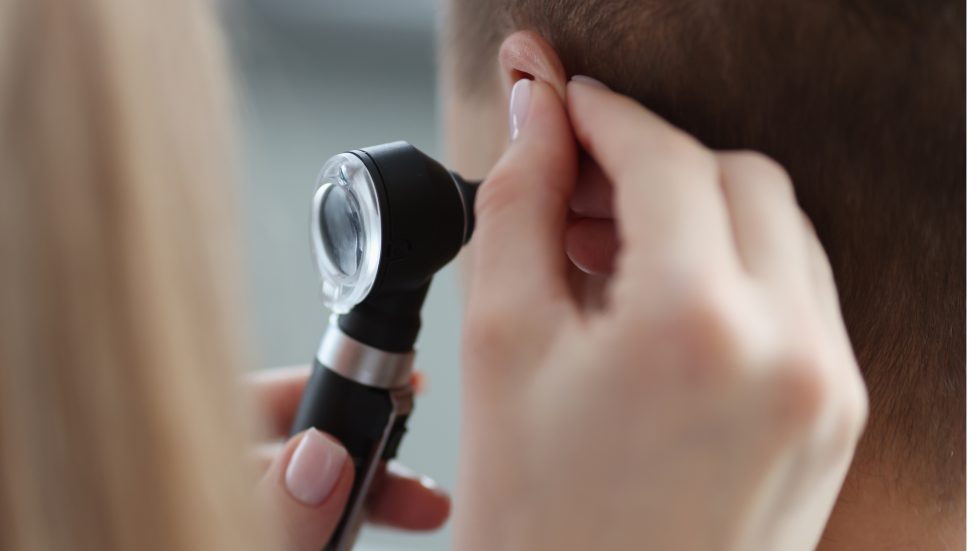
How Can I Reduce My Child’s Ear Infection Pain?
As your child’s ears continue to grow and develop, it’s important to be aware of their increased susceptibility to ear infections compared to adults. This vulnerability is due to their developing immune system and the higher likelihood of swelling and infection in their drainage pathways, especially after experiencing a cold. Children under three years old face significant statistics – a five out of six chance of experiencing an ear infection. Since ear infections are a common occurrence in children, ranking second only to the common cold, parents should be proactive in recognizing signs, managing any discomfort, and understanding when it’s necessary to seek professional medical attention.
5 Tips to Alleviate Pain from an Ear Infection
While it’s advisable to consult a healthcare provider, these home remedies can offer relief for your child as you await professional medical attention:
- Warm Compress: Ease pain by applying a moist compress over your child’s ear for 10 to 15 minutes.
- Over-the-counter Pain Medication: Administer age-appropriate medication to address fever; acetaminophen is suitable for babies older than 6 months.
- Fluid-Drying Ear Drops: For outer ear infections, consider using over-the-counter fluid-drying ear drops.
- Warm Oil: If there’s no fluid drainage, use room temperature or slightly warmed olive or sesame oil in the affected ear.
- Quality Sleep and Rest: Strengthen the immune system with sufficient sleep, but avoid sleeping on the infected ear to prevent discomfort.
Understanding the Different Types of Ear Infections
Ear infections, whether caused by bacteria or viruses, can result in painful symptoms, hearing loss, and fever. While some may resolve on their own, timely attention is crucial to prevent complications. The type of ear infection—be it inner, middle, or outer—determines the appropriate course of treatment:
Outer Ear:
Commonly referred to as swimmer’s ear, this infection affects the ear canal and is frequently triggered by bacteria transmitted during activities like swimming.
Middle Ear:
Involving the space between the eardrum and inner ear, this infection typically stems from an upper respiratory infection.
Inner Ear:
More commonly observed in adults, this infection may occur when a middle ear infection spreads to the inner ear and is typically caused by viruses.
What are the signs of an ear infection?
Detecting the origin of discomfort in children, particularly infants, can be challenging. Keep an eye out for these indications that may suggest a potential ear infection:
- Ear pain, especially when lying down
- Tugging or pulling at an ear
- Difficulty sleeping
- Increased crying
- Fussiness or irritability
- Trouble hearing or responding to sounds
- Loss of balance
- Fever of 100°F or higher
- Fluid drainage from the ear
- Complaints of a headache
Early identification is essential for swift and appropriate care. If you observe any of these symptoms, seek guidance from a healthcare professional for a thorough assessment and advice.
When should I see a doctor?
If symptoms persist beyond a few days or if there’s a high fever, fluid or blood from the ear, loss of hearing, or frequent ear infections, consult a doctor. Antibiotics may be prescribed for pain relief and infection treatment.
How Can I Prevent Ear Infections
Prevention is key to good ear health. Follow these measures to reduce the risk of ear infections:
- Wash hands frequently to prevent the spread of germs.
- Get vaccinated against flu and other recommended infections.
- Avoid cigarette smoke, as secondhand smoke increases the risk of ear infections.
- Limit pacifier use, following the recommendations of the American Academy of Pediatrics.
- Caution with Q-tips: During an infection, refrain from using Q-tips to clean the ear canal to prevent potential damage.
By implementing these preventive measures and utilizing home remedies when needed, you can help keep your child’s ears happy and healthy. If you suspect an ear infection, seek professional medical advice promptly.
As winter embraces Statesville, North Carolina, it’s an ideal time to engage in activities such as hitting the slopes of nearby Sugar Mountain, experiencing cosmic bowling at Pla Mor Lanes with the kids, or exploring the historical significance of Fort Dobbs Historic Site. While winter has its charms, it’s essential to be prepared for the seasonal changes. As you immerse yourself in winter adventures, equip yourself with the essentials to stay healthy during the season.